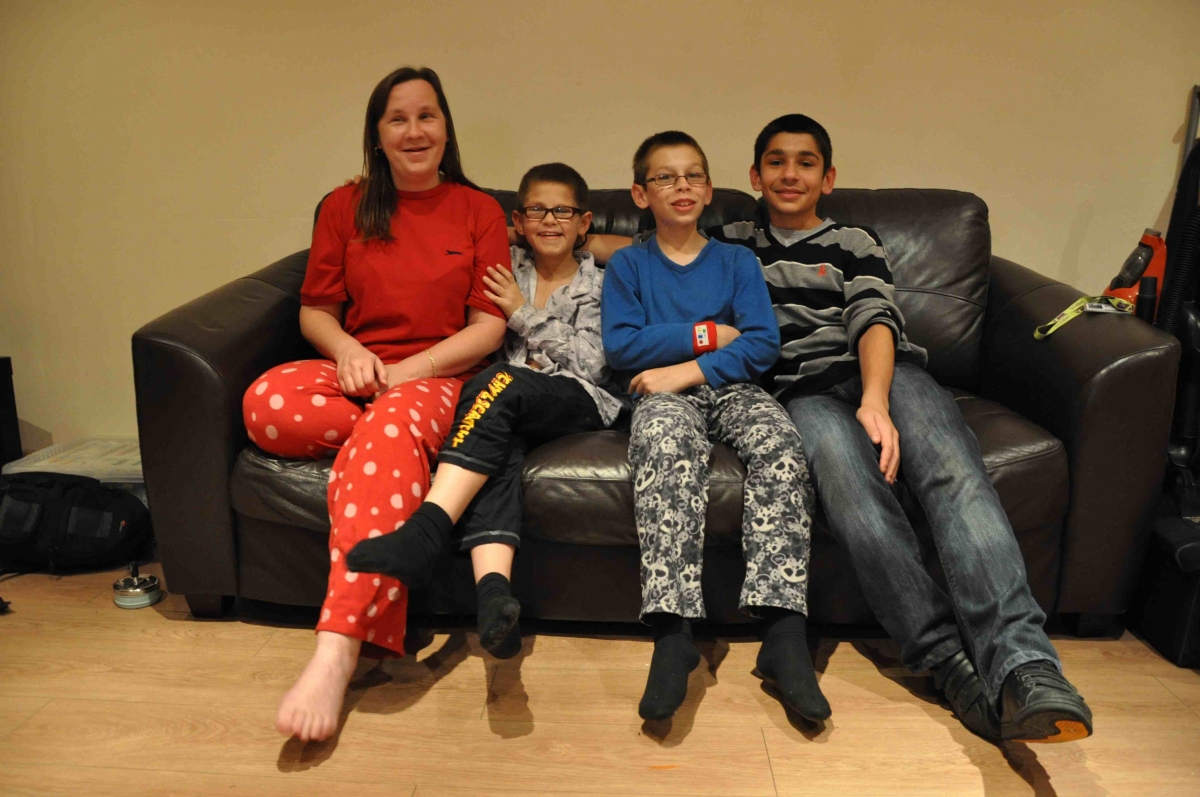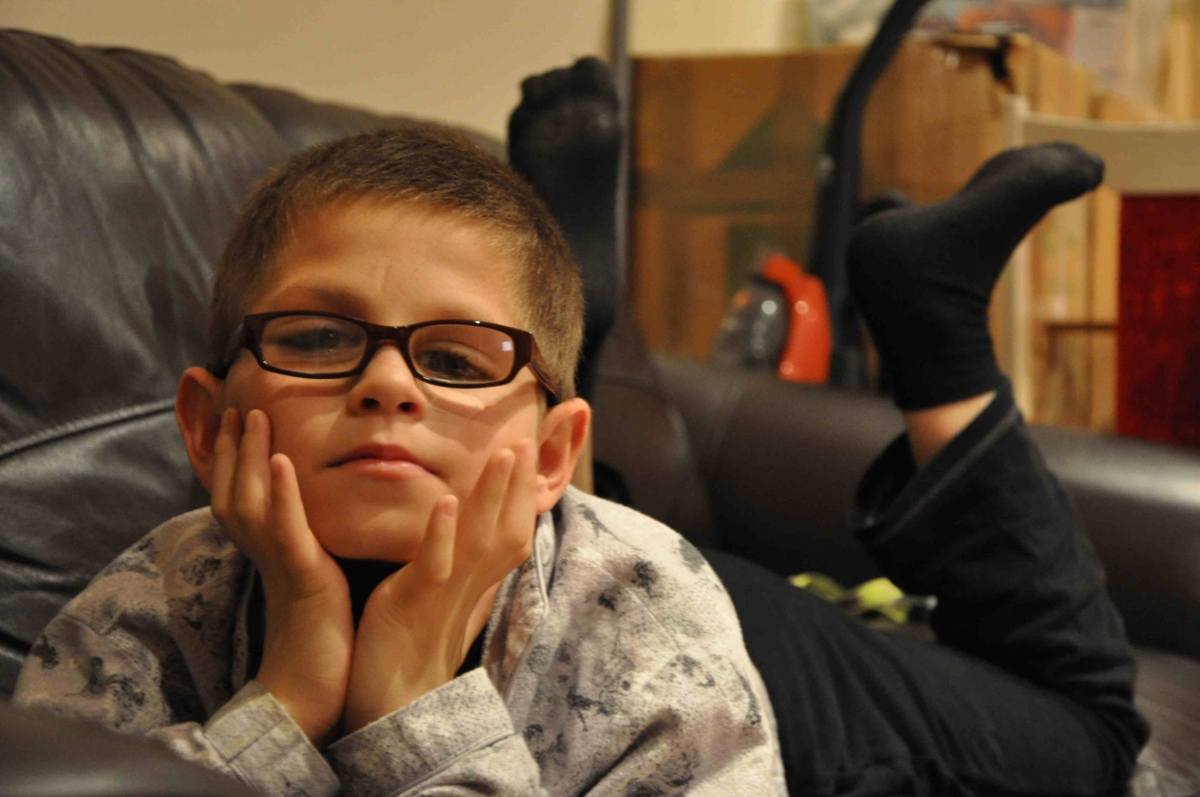Jennie is 39 and unemployed. She lives with her three sons, all of whom have disabilities, in Redbridge, outer London. The family has lived in temporary accommodation for the last 12 years.
Meet Jennie and family in the following three videos recorded in autumn 2011.
© 2012. All films are the copyright of the PSE: UK project and must not be reproduced, posted or downloaded. The films were produced for The Open University by Angel Eye Media; filmed and directed by Gabi Kent and researched by Laurel Jagroo.
I could be moved tomorrow to another place if the landlord or whoever owns this property wants it back, which means I’ve got to move again!
Jennie worked as a hairdresser when she left school and then switched to part-time work when she started a family. Her middle son, Mark, 13, contracted meningitis when a baby and Jennie left work to care for him. He is visually impaired and has Perthe’s disease, as a result of which he cannot walk long distances. Jordan, 16, has attention deficit hyperactivity disorder (ADHD) and Michael, 11, is also visually impaired with no peripheral vision.
When Jennie separated from her husband in 1999, the family moved to a women’s refuge, all four sharing one room for ten months. Since then the family has always lived in temporary accommodation, seven different homes in total. Jennie suffers from insomnia and stress.
For most of the children’s lives, the family has been poor. When filmed in late 2011, the family lived on £243 a week, excluding housing benefit but including jobseeker’s allowance, child benefit and child tax credit.
Background
Single parent poverty
Single parent families are one of the groups most vulnerable to poverty. The 1999 PSE survey found that single parents were well over twice as likely as all households to live in poverty, with two out of three single parents living in poverty (see Poverty and Social Exclusion in Britain, Joseph Rowntree Foundation, 2000).
Single parents, working and non-working, are among the heaviest losers from the Coalition government’s tax and benefits changes. While some of those in work will gain from the raising of the tax threshold, most benefits for families are being frozen, cut or withdrawn. Jennie has been affected by the three-year freezing of child benefit rates from April 2011, and by changes in how inflation is allowed for in the jobseeker’s allowance, with annual adjustments being calculated using the Consumer Price Index instead of the faster rising Retail Price Index. Other families will be affected by:
- a reduction in the childcare element of working tax credit from April 2011
- the capping of housing benefit for existing claimants from April 2012
- the replacement of the social fund, and the localising and lowering of council tax benefit from 2013.
The Institute for Fiscal Studies, in a report commissioned by the Fawcett Society, estimates that lone mothers can expect to lose 8.5 per cent of their annual income by 2015 as a result of the government’s changes. This is three times the percentage amount the average childless couple will lose (see further details on the IFS website).
The poverty trap
Single parents with few qualifications and skills, and often with limited hours available for work, can often find the type of work they can get is so badly paid that they are little better off in employment than on benefits. Although successive governments have tried to tackle this problem and have put pressure on single parents to find work, the relative pay of unskilled, part-time jobs has fallen over the last 30 years, making it increasingly difficult for many single parents to find work that will lift them out of poverty. They remain caught in the poverty trap.
Homelessness
Homelessness is on the rise. Between 2010 and 2011, the number of families accepted as homeless by local authorities rose by 14 per cent, while recorded rough sleeping was nearly a fifth higher in Autumn 2011 compared with a year earlier (see Homelessness figures surge by 14 per cent).






 PSE:UK is a major collaboration between the University of Bristol, Heriot-Watt University, The Open University, Queen's University Belfast, University of Glasgow and the University of York working with the National Centre for Social Research and the Northern Ireland Statistics and Research Agency. ESRC Grant RES-060-25-0052.
PSE:UK is a major collaboration between the University of Bristol, Heriot-Watt University, The Open University, Queen's University Belfast, University of Glasgow and the University of York working with the National Centre for Social Research and the Northern Ireland Statistics and Research Agency. ESRC Grant RES-060-25-0052.






